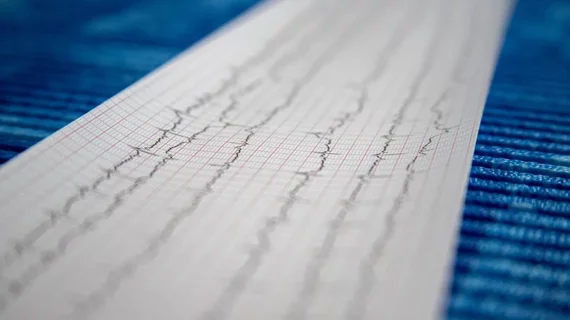Yes, Apple’s iPhone can interfere with implantable cardiac devices—here’s what you should know
The magnets built into certain Apple iPhones can cause significant issues with cardiac implantable electronic devices (CIEDs), according to a new analysis in the Journal of the American Heart Association.
This issue “has the potential to inhibit lifesaving therapies,” the authors wrote.
The problem seems to be triggered by charging technology built into the iPhone 12. For this small-scale study, the authors evaluated the impact of an iPhone 12 Pro Max on three patients presenting to an electrophysiology laboratory with existing CIEDs. They also tested the phone’s impact on 11 different CIEDs from vendors such as Medtronic, Abbott and Boston Scientific that have not yet been implanted.
Overall, the team reported, the iPhone 12 Pro Max interfered with all three of the implanted devices and 8 of the 11 (72.7%) devices that have not been implanted. Any patients concerned about the potential issue are advised to speak with a clinician.
The authors noted that an older study using the iPhone 6 resulted in zero cases of interference after tests with 148 different patients, making it clear that this issue is new and should be taken seriously.
“We have always known that magnets can interfere with cardiac implantable electronic devices, however, we were surprised by the strength of the magnets used in the iPhone 12 magnet technology,” lead study investigator Michael Wu, MD, a specialist at the Rhode Island and Miriam Hospital’s Lifespan Cardiovascular Institute and Brown University’s Warren Alpert School of Medicine, said in a prepared statement. “In general, a magnet can change a pacemaker’s timing or deactivate a defibrillator’s lifesaving functions, and this research indicate the urgency for everyone to be aware that electronic devices with magnets can interfere with cardiac implantable electronic devices.”
This latest analysis confirms previous reports of iPhone-related CIED issues. In early 2021, a group of cardiologists discovered that the magnet inside an Apple iPhone 12 can temporarily deactivate a patient’s CIED, sharing their findings in Heart Rhythm. The FDA also published its own advisory on how consumer electronics are beginning to affect medical devices, noting that the number of affected devices “is expected to increase over time.”
Click here for the full study.

